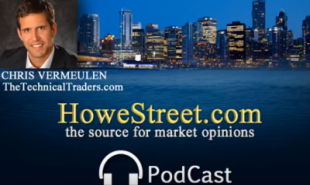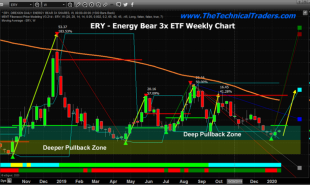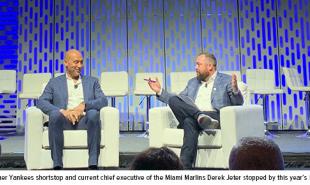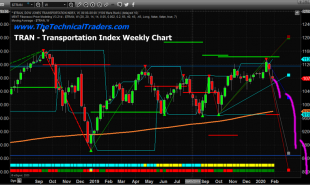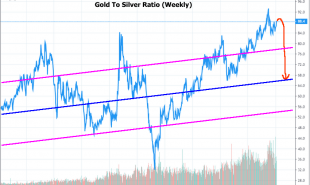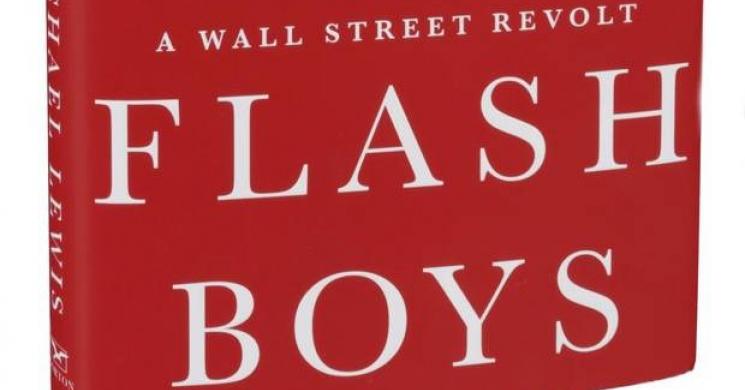
In our ever-expanding fast-paced world, a new equities exchange is making headlines Monday as it slows things down. Friday evening, the U.S. Securities and Exchange Commission gave its approval for private exchange startup IEX to become a full-fledged stock exchange. According to reports, the SEC’s decision on is shaking up the Wall Street establishment that continues to support the growth of high frequency trading.
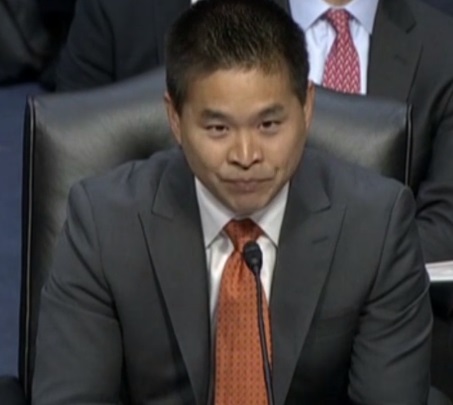 "We are grateful and humbled by the support we've received from the investor community," IEX Chief Executive Officer Brad Katsuyama said in a statement following the decision. "Without it, we may have faced a different result."
IEX has been operating as an alternative trading system, often referred to as a Darkpool, since October 2013. The company has grown significantly in the last five years, with average trading volume of about 280 million shares per day, as it shuns HFT trading by implementing a “speed-bump” for all trades. Trades on the platform are delayed by 350 millionths of a second, faster than a blink of an eye but just enough to throw off systems that rely on unfiltered high speeds to front-run buyers.
In its statement, the SEC noted, “a small delay will not prevent investors from accessing stock prices in a fair and efficient manner." The commission also said that it will conduct a study in two years to see whether or not a “speed bump” is hurting the market and investors.
In an interview with Bloomberg TV Monday, Katsuyama said they have grown as much as they can as a Darkpool and the company looks forward to expanding its role as a full stock exchange with potential launch date in August.
Katsuyama gained international fame as he was one of the traders featured in Michael Lewis’ best-selling book “Flash Boys.”
In the Bloomberg interview, Katsuyama explained that he helped create IEX because of what he sees as a growing problem with high frequency trading. He added that firms use their high-speed algorithms to front run orders from ordinary traders. Traders and investors are forced to get their orders filled at higher price levels, which lets HTF programs scalp profits between shifting bid/ask spreads.
Wall Street exchanges have promoted the growth of HFT activity because it creates liquidity for financial markets. Exchanges give HFT rebates, which can add up to millions of dollars, for providing this liquidity.
Although IEX doesn’t offer rebates, Katsuyama said that his company has been able to grow because investors are filling orders at the execution price they see on their screen. He added that investors’ ability to get their orders without being front run by a computer program has been a significant selling point among investors.
"We are grateful and humbled by the support we've received from the investor community," IEX Chief Executive Officer Brad Katsuyama said in a statement following the decision. "Without it, we may have faced a different result."
IEX has been operating as an alternative trading system, often referred to as a Darkpool, since October 2013. The company has grown significantly in the last five years, with average trading volume of about 280 million shares per day, as it shuns HFT trading by implementing a “speed-bump” for all trades. Trades on the platform are delayed by 350 millionths of a second, faster than a blink of an eye but just enough to throw off systems that rely on unfiltered high speeds to front-run buyers.
In its statement, the SEC noted, “a small delay will not prevent investors from accessing stock prices in a fair and efficient manner." The commission also said that it will conduct a study in two years to see whether or not a “speed bump” is hurting the market and investors.
In an interview with Bloomberg TV Monday, Katsuyama said they have grown as much as they can as a Darkpool and the company looks forward to expanding its role as a full stock exchange with potential launch date in August.
Katsuyama gained international fame as he was one of the traders featured in Michael Lewis’ best-selling book “Flash Boys.”
In the Bloomberg interview, Katsuyama explained that he helped create IEX because of what he sees as a growing problem with high frequency trading. He added that firms use their high-speed algorithms to front run orders from ordinary traders. Traders and investors are forced to get their orders filled at higher price levels, which lets HTF programs scalp profits between shifting bid/ask spreads.
Wall Street exchanges have promoted the growth of HFT activity because it creates liquidity for financial markets. Exchanges give HFT rebates, which can add up to millions of dollars, for providing this liquidity.
Although IEX doesn’t offer rebates, Katsuyama said that his company has been able to grow because investors are filling orders at the execution price they see on their screen. He added that investors’ ability to get their orders without being front run by a computer program has been a significant selling point among investors.
Read more by MarketSlant Editor



